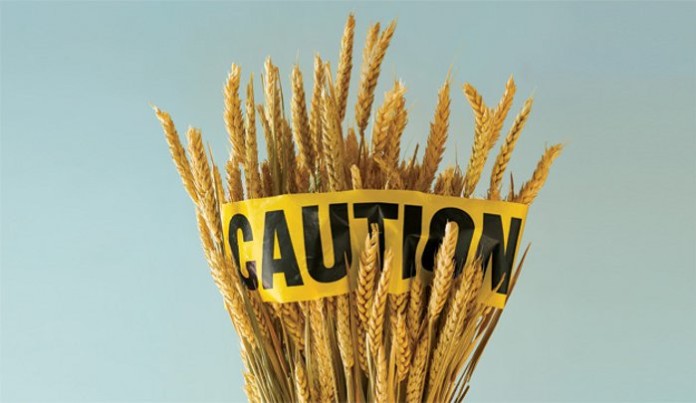Even small amounts of gluten for those with CD can trigger a reaction that damages the lining of the small intestine and sometimes causes uncomfortable gastrointestinal symptoms. But since avoiding every last trace of wheat can be a real lifestyle disruptor, researchers are trying to understand more about celiac disease in order to develop alternative treatments.
A new line of research is investigating what the human gut microbiota has to do with the onset and progression of celiac disease. Bacteria in the human small intestine participate in gluten metabolism, and scientists already know that individuals with CD tend to have a different set of small intestinal bacteria than those without the disease.
Would the bacterial communities of a celiac and a non-celiac handle wheat proteins differently?
According to new research from McMaster University (Canada), when small intestinal microbes from a person with CD interact with gluten, they can trigger a different immune reaction than the microbes from a person without CD.
In the study, researchers isolated species of gluten-degrading bacteria from the small intestines of individuals with and without celiac disease: the pathogenic bacteria Pseudomonas aeruginosa was isolated from those with CD (as it was uniquely found in their guts), while Lactobacillus species were taken from the small intestines of those without CD. The group colonized germ-free mice with the bacteria, fed gluten to the mice, and stood back to observe the results.
When the bacteria under study encountered gluten, they produced molecules called peptides. Knowing that different peptides talk differently to immune cells—those provoking a stronger immune response are called more “immunogenic”—the researchers tested how the peptides reacted with blood immune cells isolated from people with CD.
They found the peptides produced by the celiac-sourced Pseudomonas aeruginosa did something interesting: they activated gluten-specific immune cells, meaning the peptides were highly immunogenic. The Lactobacillus species from the healthy people, on the other hand, were able to degrade these peptides in order to decrease the immune reaction. So, it seemed, particular bacteria from the small intestine could increase or decrease the immune reactions triggered by the digestion of gluten.
The researchers say this work shows links between gut bacteria and the immune system in gluten metabolism; it highlights the role bacteria can play in the body’s reaction to gluten, and is consistent with the idea that bacterial dysbiosis could be a key part of celiac disease, even though the particular bacteria they studied may not be the only ones that modify gluten digestion.
With this new information, the researchers could potentially find a way to keep bacteria from producing harmful peptides—it’s just a first step, but they believe they are on track to expand the treatment options for people living with celiac disease.
Reference: Caminero A, Galipeau HJ, McCarville JL, et al. Duodenal bacteria from patients with celiac disease and healthy subjects distinctly affect gluten breakdown and immunogenicity. Gastroenterology. 2016; 151(4):670-83.
Source: gutmicrobiotaforhealth.com



















































